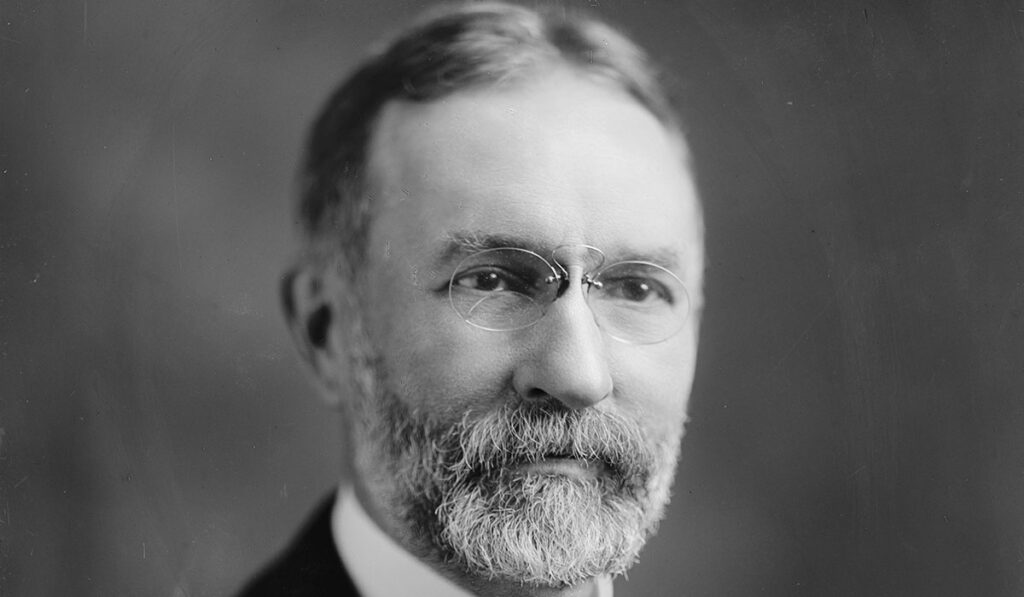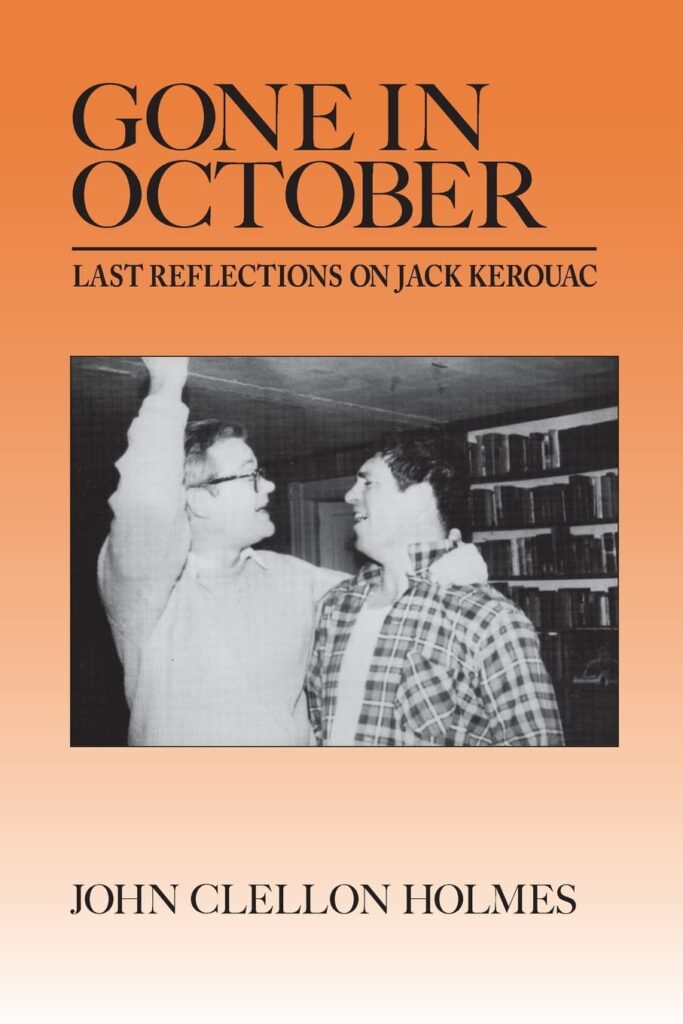On September 5, 1922, a very conservative Republican from Utah, George Sutherland, was nominated by Republican President Warren Harding to the U.S. Supreme Court. In many ways, Sutherland was a natural choice: a former state legislator, congressman, senator and a diplomat.
Sutherland’s family eventually left the LDS Church, but he attended what was then Brigham Young Academy and made a reputation as a lawyer defending members of the faith indicted under federal anti-polygamy statutes.
On the afternoon his appointment was submitted to the Senate, Sutherland was confirmed to a lifetime appointment on the nation’s highest court. Quickest confirmation in history. No hearing. No FBI background check. No questions. Harding wanted it. It happened.

Say this much for George Sutherland: he looked the part of a judge. Trimmed white beard. Regal bearing. And a resume seemingly ideal for a Republican president wanting to maintain a conservative court. Sutherland served as a justice for 18 years, came to be known as one of the “four horsemen,” the ultra conservatives who made the Supreme Court in the 1920’s and 1930’s the most conservative Court since, well, since now. As one legal scholar has noted, Justice Sutherland’s “predominant tendency was to cleave to the past when assessing issues before him.”
I thought about George Sutherland, a Supreme Court justice largely assigned to the judicial history dustbin this week, as a host of Republican senators took turns trying to denigrate the nomination of the first African American woman to the nation’s highest court. Those conservatives had a field day, or at least they tried to have a field day, at the expense of an obviously supremely qualified, supremely patient, supremely measured judge.
The larger context here is the rollback of American jurisprudence, “to cleave to the past.” The ghost of Justice Sutherland stalks the modern Republican Party.
And you ain’t seen nothing yet.
Missouri Senator Josh Hawley, getting a jump on hearings for Judge Ketanji Brown Jackson, actually previewed his line of attack days ago on social media. Hawley, most famous for his show of support for Capitol insurrectionists on January 6, sought to paint the judge as “soft on child pornography.”
Hawley, a Stanford and Yale trained lawyer, broadly distorted the judge’s sentencing record, so misrepresenting the facts as to be accused of “a smear” campaign. The conservative National Review called Hawley “a demagogue,” a charge that has the benefit of being true.
Predictably others – Ted Cruz, Mike Lee, Tom Cotton and Marsha Blackburn – helped advance the smear, causing CNN White House correspondent John Harwood to remark that “GOP senators shaped their attacks on a Supreme Court pick [with a] sterling resume to appeal to the kinds of people who fantasize about Democrats running a child sex trafficking ring out of a Washington pizzeria because loons like that play such an important role in GOP politics.”
And there was more. Cruz, channeling his inner Joe McCarthy, tried to make Judge Jackson responsible for every book used at the Washington, D.C. private school where she serves on the board. It’s just the kind of school Cruz’s children attend. The judge patiently explained her board doesn’t deal with curriculum, but the attack allowed Cruz to slime the nominee as an advocate of Critical Race Theory (CRT). Right on cue the Republican National Committee distributed a photo of Judge Jackson with her initials replaced with CRT.
As dog whistles go, this level of demagoguery and race baiting makes the tactics of the Senate’s southern segregationist’s of the 50’s and 60’s seem downright mild.
Blackburn asked the witness for a definition of a “woman” before slipping slimily into an attack on transgendered athletes. Lindsey Graham, another attorney, berated Jackson for her role as a defense attorney for detainees at Guantanamo, literally suggesting that some accused of crimes under our system aren’t entitled to representation in court. The subtext of Graham’s sleaze is, of course, the image of a Black woman defending a Muslim terrorist.
Make no mistake, these attacks on Ketanji Brown Jackson are not about her ten-year record as a judge or as a universally praised member of a national commission to review federal sentencing guidelines. No matter her record or what she says to questions based on grievance and the past, Jackson will be lucky to get two Republican votes for confirmation.
The attacks on her are centered squarely on stoking grievance and furthering racial division. This might have been a time for bipartisan celebration of the career of an accomplished woman of color, but that’s not where most in the conservative base live. And while the attacks this week were particularly odious, brutal and fact-free they hardly represent a new page in the conservative playbook. Grievance and culture combat has been and remains the party line.
Graham, who admitted he goes “to church probably three times a year,” pressed Judge Jackson on her faith, even asking her to rank how important her spiritual beliefs are on a scale of 1 to 10. The judge described herself as a non-denominational protestant, and wisely observed that there is no religious test in the Constitution.
Good thing Mr. Justice Sutherland, the lapsed Mormon, never met Lindsey Graham.
Also make no mistake that there is much more at play here than the historic confirmation of one Black woman to the Supreme Court. Indiana Republican Senator Mike Braun spilled those beans when he told an interviewer this week that in his opinion Roe v. Wade had been improperly decided in the 1970’s. Such issues should be left to the states, Braun said. Pressed on whether that kind of judicial philosophy might extend to interracial marriage or state-level bans on the use of contraceptives, Braun opened the alt right kimono.
“You can list a whole host of issues,” Braun said. “When it comes down to whatever they are, I’m going to say that they’re not going to all make you happy within a given state, but that we’re better off having states manifest their points of view rather than homogenizing it across the country, as Roe v. Wade did.”
Braun quickly walked back his comments about interracial marriage saying he misunderstood the question – he clearly did not based on the videotape of his answer – while assuring us, very unconvincingly, that he is all for protecting individual rights.
With this line of thinking – remember Judge Jackson was also questioned about Supreme Court decisions on contraceptives and same sex marriage – when Roe is overturned it follows naturally that other landmark court decisions ensuring individual rights will be ripe for re-assessment. Braun didn’t misspeak, he telegraphed the hard right’s judicial playbook for the next decade.
Roe v. Wade will be just the beginning. A Justice Jackson will make history. The most conservative court since George Sutherland’s day will too.
—–0—–
Additional Reading:
Some additional items you may find of interest …
Was it inevitable? A short history of Russia’s war on Ukraine
Several pieces from various angles on Putin’s continuing war.
“This war was not inevitable, but we have been moving toward it for years: the west, and Russia, and Ukraine. The war itself is not new – it began, as Ukrainians have frequently reminded us in the past two weeks, with the Russian incursion in 2014. But the roots go back even further. We are still experiencing the death throes of the Soviet empire. We are reaping, too, in the west, the fruits of our failed policies in the region after the Soviet collapse.”
From Keith Gessen in The Guardian.
* * * * *
Putin Lives in Historic Analogies and Metaphors

And I found this piece particularly good.
“Political scientist Ivan Krastev is an astute observer of Vladimir Putin. In an interview, he speaks of the Russian president’s isolation, his understanding of Russian history and how he has become a prisoner of his own rhetoric.”
From the German publication Spiegel International.
* * * * *
Assassinating Putin Won’t Work. It Never Has for America
The aforementioned Senator Graham of South Carolina blustered recently about “taking out” the Russian president. The great historian of the CIA, Steven Kinzer, says it’s really a pretty bad idea.
“Americans are impatient by nature. We want quick solutions, even to complex problems. That makes killing a foreign leader seem like a good way to end a war. Every time we have tried it, though, we’ve failed — whether or not the target falls. Morality and legality aside, it doesn’t work. Castro thrived on his ability to survive American plots. In the Congo, almost everything that has happened since Lumumba’s murder has been awful.”
The Growing Blight of “Infill” McMansions
I quote Mike Lofgren, a long-time congressional staffer, in my book about the 1980 election. He’s found life after Capitol Hill as a writer, and this Washington Monthly piece on the new wave of McMansions – huge and often very ugly homes – in old, established neighborhoods is both well written and spot on.
“While the sheer size of the structure guarantees disharmony with the local houses, the eye-lacerating incongruity of its style brings it to a new level. The structures resemble the architecture of the Loire Valley, Elizabethan England, or Renaissance Tuscany—as imagined by Walt Disney, or perhaps Liberace. As with McMansions everywhere, the new owners could have obtained a sounder design for less, but they prefer the turrets, portes-cochères, and ill-proportioned Palladian windows that they bought.”
John Clellon Holmes on the Funeral of His Longtime Friend Jack Kerouac

My old and dear pal, Rick Ardinger – along with his wife and partner, Rose – have re-published a great book length piece on the celebrated “beat” generation writer Jack Kerouac by Kerouac’s friend John Clellon Holmes.
The book was excerpted recently at the LitHub site. Read the excerpt here and please consider ordering the book.
The LaLee, London: ‘A menu designed for well-heeled tourists’
And finally, I am a sucker for the snarky restaurant review. This one is pretty good, or bad …
“It’s attempting to be a thrilling destination restaurant, when in truth it should just be the utilitarian dining option in a fancy boutique London hotel. As a result, it’s neither.”
All righty, then. Here’s the link.
Thanks for following along. Stay engaged. Democracy is on the ballot this year. All hands on deck.





















